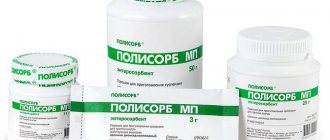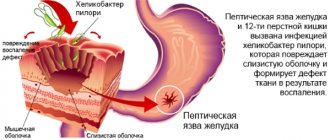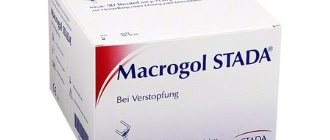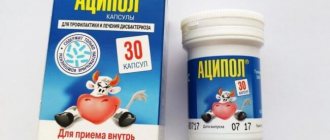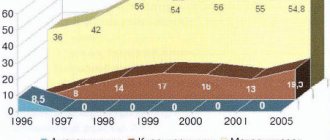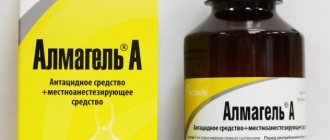Polisorb MP
Polysorb MP is taken orally only in the form of an aqueous suspension!
To obtain a suspension, the required amount of the drug is thoroughly mixed in 1/4-1/2 cup of water. It is recommended to prepare a fresh suspension before each dose of the drug and drink it 1 hour before meals or taking other medications.
The average daily dose in adults is 0.1-0.2 g per 1 kg of body weight (6-12 g). The drug is taken in 3-4 doses during the day.
The maximum daily dose in adults is 0.33 g per 1 kg of body weight (20 g). The dose for children is calculated depending on body weight (see table).
Dosage regimen of the drug depending on body weight
| Patient weight | Dosage | Water volume | ||
| up to 10 kg | 0.5-1.5 teaspoons per day | 30-50 ml | ||
| 11-20 kg | 1 level teaspoon per serving | 30-50 ml | ||
| 21-30 kg | 1 heaped teaspoon per serving | 50-70 ml | ||
| 31-40 kg | 2 heaped teaspoons per serving | 70-100 ml | ||
| 41-60 kg | 1 heaped tablespoon per serving | 100 ml | ||
| more than 60 kg | 1-2 heaped tablespoons per serving | 100-150 ml | ||
1 heaped teaspoon - 1 gram of drug
1 heaped tablespoon - 2.5-3 grams of the drug.
In cases of food allergies, the drug is taken immediately before meals; the daily dose of Polysorb MP is divided into three doses throughout the day.
The duration of treatment depends on the diagnosis and severity of the disease; the course of treatment for acute intoxication is 3-5 days; for allergic diseases, chronic intoxications, the duration of treatment is up to 10-14 days. Repeated courses after 2-3 weeks, on the recommendation of a doctor.
Features of the use of the drug Polysorb MP for various diseases
1. Foodborne illness and acute poisoning.
It is recommended to begin therapy with gastric lavage with a 0.5-1% Polysorb MP suspension. In case of severe poisoning on the first day, gastric lavage is carried out through a tube every 4-6 hours, and the drug is also given orally. A single dose in adults can be 0.1-0.15 g/kg of the patient’s body weight 2-3 times a day.
2. Acute intestinal infections.
It is recommended to start treatment with Polysorb MP in the first hours or days of the disease in combination with other treatment methods. On the first day, the daily dose is given over 5 hours with intervals between doses of 1 hour. On the 2nd day, the daily dose is given in 4 doses throughout the day. Duration of treatment is 3-5 days.
3. Treatment of viral hepatitis.
In the complex therapy of viral hepatitis, Polysorb MP is used as a detoxifying agent in normal doses during the first 7-10 days of illness.
4. Allergic diseases.
In case of acute allergic reactions of drug or food origin, preliminary lavage of the stomach and intestines with a 0.5-1% Polysorb MP suspension is recommended. The drug is then given in usual doses until clinical effect occurs. For chronic food allergies, courses of Polysorb MP are recommended for 7-10-15 days, the drug is taken immediately before meals. Similar courses are indicated for acute recurrent urticaria and Quincke's edema, eosinophilia, on the eve of exacerbation of hay fever and other atopies.
5. Chronic renal failure.
Courses of treatment with Polysorb MP are used in a daily dose of 0.15-0.2 g/kg body for 25-30 days with a break of 2-3 weeks.
Nosological classification (ICD-10)
- A05.9 Bacterial food poisoning, unspecified
- B19 Viral hepatitis, unspecified
- K59.1 Functional diarrhea
- K63.8.0* Dysbacteriosis
- N18 Chronic renal failure
- R17 Unspecified jaundice
- T50.9 Other and unspecified drugs, medicinal products and biological substances
- T50.9.0* Alkaloid poisoning
- T51 Toxic effects of alcohol
- T56.9 Toxic effect of unspecified metal
- T65.9 Toxic effects of unspecified substance
- T78.4 Allergy, unspecified
- Y57 Adverse reactions during therapeutic use of other and unspecified drugs and medications
- Y97 Factors associated with environmental pollution
- Z57 Occupational exposure to hazards
Contraindications to the use of the drug Polysorb
Ubiquitous advertising claims that this product is completely safe for humans. However, after carefully reading the instructions for use of this powder, you may find such contraindications to the use of Polysorb.
- Active phase of exacerbation of gastric or duodenal ulcer.
- Intestinal atony is a condition in which there is a lack of intestinal tone and peristalsis. It develops against the background of endocrine or neurological diseases or as a side effect of other medications.
- Bleeding from the upper digestive tract.
- Intestinal obstruction.
- Individual intolerance to the drug, tendency to allergic reactions.
A suspension prepared from Polysorb powder cannot be absorbed from the digestive tract. Its use is approved for pregnant and lactating women. For children, adolescents and people with severe chronic pathologies, the dose is selected or adjusted only by the attending physician.
Side effects from taking Polysorb
In most cases, the drug is well tolerated by patients. In some cases, the following side effects may occur:
- constipation (its risk occurs with atony of the digestive tract);
- acute allergic reaction in the form of rash, swelling, itching of the skin and mucous membranes;
- dyspeptic symptoms (most often manifested in the form of nausea, discomfort, or pain in the upper parts of the digestive tract, early satiety with food, flatulence, a feeling of constant fullness in the stomach when eating even a small amount of food;
- constant unpleasant taste in the mouth.
Polysorb has a non-selective effect. This means that it removes from the digestive tract not only poisons, but also substances necessary for the body. Therefore, doctors do not recommend long-term use of this drug (for more than two weeks in a row). Otherwise, the absorption of microelements, vitamins, and essential nutrients is impaired. If further use of Polysorb is necessary, patients will be prescribed supplements containing vitamins and microelements.
Pharmacodynamics
Polysorb® MP (medical oral) is an inorganic, non-selective, multifunctional enterosorbent based on highly dispersed silica with particle sizes up to 0.09 mm, with the chemical formula SiO2. The sorption capacity of the drug for internal use is 300 m2/g.
Polysorb® MP has pronounced sorption and detoxification properties. In the lumen of the gastrointestinal tract, the drug binds and removes from the body endogenous and exogenous toxic substances of various natures, pathogenic bacteria and bacterial toxins, antigens, food allergens, drugs and poisons, heavy metal salts, radionuclides, alcohol.
Polysorb® MP also sorbs some metabolic products of the body, incl. excess bilirubin, urea, cholesterol and lipid complexes, as well as metabolites responsible for the development of endogenous toxicosis.
Features of the use of Polysorb for hangover and withdrawal syndrome
Any case of alcohol abuse ends in a hangover, or post-intoxication syndrome. In the mechanism of development of this syndrome, the breakdown products of ethyl alcohol play a crucial role. The most toxic of them is acetaldehyde. During the further breakdown of this substance, free radicals are released, which further aggravate the patient's condition.
Against the background of intoxication, a person’s functioning of all internal organs is disrupted. Polysorb effectively removes alcohol breakdown products. Due to its biochemical properties, the drug binds toxins that are released into the blood against the background of impaired liver and kidney function.
In case of a hangover, Polysorb does not act on alcohol, but on the products that are formed during its breakdown. According to the instructions for use of this product, the suspension should be taken no later than 6 hours after finishing drinking alcohol. Or do this on the eve of a violent libation.
In case of acute alcohol poisoning due to a hangover, Polysorb actively removes toxins and eliminates the following symptoms:
- pronounced surges in blood pressure;
- headache;
- trembling of limbs;
- lethargy;
- weakness;
- sweating;
- swelling, especially noticeable on the face;
- thirsty;
- bowel disorders;
- neuropsychiatric disorders.
If you drink too much alcohol, the liver cannot process ethanol. Drinking the drug significantly alleviates the human condition and promotes faster normalization of body functions. Consuming Polysorb immediately after a stormy feast does not have a pronounced effect: small colloidal particles act in the intestines, and toxins have time to penetrate the blood. But even in this case, the medicine helps the liver function
Polysorb effectively relieves symptoms of withdrawal syndrome when stopping alcohol consumption. This promotes faster recovery of the body. However, the drug is not able to remove acetaldehyde and acetic acid from the blood - substances formed during the breakdown of alcohol.
For a hangover, the standard dose for an adult is 2 tablespoons of powder dissolved in 150 liters of water. The action begins within half an hour after oral administration.
For alcoholism, Polysorb should be taken 3–4 times a day for 5–10 days or until the patient’s condition is relatively normal. All this time, it is recommended to drink more fluid, because a significant amount of it is spent on maintaining the activity of the microparticles of the drug.
Taking Polysorb during alcohol intoxication
Acute poisoning with ethyl alcohol can often lead to death. Poisoning with methyl and other alcohols, which are part of counterfeit alcoholic drinks, is especially dangerous. Ingestion of 10 ml of methanol leads to severe poisoning, one of the consequences of which is blindness. Taking enterosorbents allows you to achieve the following effects:
- binding of alcohols in the stomach and intestines;
- normalization of glutathione levels;
- restoration of biological blood parameters;
- preventing the primary absorption of alcoholic beverages;
- decrease in the concentration of ethyl alcohol in the blood;
- preventing the circulation of breakdown products of ethyl alcohol in the body;
- significant reduction in the half-life of alcohol (about 2 times).
Taking Polysorb improves tolerance to alcoholic beverages. In humans, the severity of symptoms of ethanol poisoning decreases. Modern use of Polysorb helps prevent deterioration of the body's condition.
In case of alcohol poisoning, the suspension is used according to the following scheme: before drinking alcohol, during libation and in the morning, after the holiday.
The inclusion of Polysorb in the complex therapy of alcohol poisoning helps to reduce the duration of alcoholic coma, improve the dynamics of restoration of cardiac and vascular functions, and reduce the length of stay of patients in a hospital.
In the case of chronic alcohol intoxication, the combination of the basic treatment regimen with Polysorb helps to reduce the hospital stay of patients, reduce the number of intravenous and infusion drugs administered, and improve the dynamics of restoration of heart and kidney functions.
Compatibility of Polysorb with other drugs
Most drugs in the enterosorbent group reduce the effectiveness of any drug if taken simultaneously. Polysorb and its analogs are capable of adsorbing inorganic compounds. To avoid this interaction, it is recommended to use Polysorb one and a half to two hours before or after taking the main medications. If treated in a hospital, the responsibilities of medical personnel include monitoring the patient’s correct intake of Polysorb and other medications. Usually, in a clinical setting, errors with taking sorbents and other medications are completely excluded.
Polysorb is an effective and safe remedy for the treatment of hangover syndrome. It is a first aid drug for alcohol intoxication: headache, hand tremors, facial swelling, thirst, irritability. However, you should not use it often, because in this case useful substances are removed from the body. If it is necessary to use Polysorb for a long time, then it is necessary to additionally prescribe vitamin and mineral complexes. They will help restore water and electrolyte balance in the body and prevent the development of chronic pathologies of the digestive tract.
But treating alcoholism with Polysorb alone is inappropriate. This is only a symptomatic remedy that temporarily relieves the symptoms of excessive alcohol consumption. If a patient suffers from alcoholism, then he needs specialized treatment.
Release form
Powder for the preparation of suspension for oral administration. 1/2/3/6/10/12 g in disposable bags made of label paper with a thermal layer. 1/2/3/4/5/10/30/50/100 disposable bags per cardboard box. It is allowed to place disposable bags directly into group packaging.
50 g in double PE bags or 5/10 kg in double PE bags (for hospitals). Packages of 50 g are placed in a cardboard box.
Also 12/15/20/25/30/35/40/45/50 g in polystyrene, PE or PET jars, sealed with lids made of similar materials. The jar is placed in a cardboard box or packed in shrink film in packs of 5 and 10 pcs.
